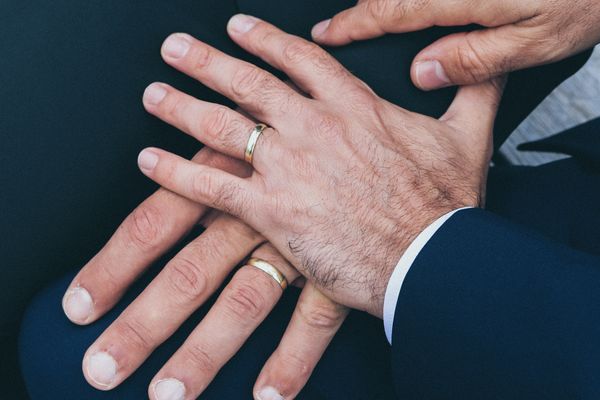Tucked away among a series of books on mental disorders, I found one particularly evil and repressive piece of literature by Joseph Nicolosi, "Healing Homosexuality: Case Stories of Reparative Therapy." I pulled it off of the shelf and hid it in my notebook because I didn't really want to be seen touching it. I took it to the back of the library and focused on it there for a bit. After a quick skim, the material was already blatantly offensive and I couldn't help but to wonder why it was here in the first place.
The overall aim of this piece is, of course, to "treat" male homosexuality and in doing so, it endorses many outdated theories in it. "Not only did Father John have an inadequate father, he had an overintimate mother as well. As a result, this particularly sensitive and vulnerable boy grew up homosexual." And there are even suggestions that homosexuality arises from instances in which one is hurt by another male, such as having a domineering older relative or experiencing sexual molestation. It infantilizes homosexuals and depicts them as people suffering from developmental deficiencies. The book is aggressive in homophobic and masculine rhetoric: "He is called upon to catch up, to conquer what the heterosexual man achieved years before. Thus he may eventually arrive at a heterosexual place..." With that being said, I found its implications to be ideologically dangerous, specifically for LGBTQ youth, and felt concerned for those who might encounter it here in future. I felt worried for the boy who might pick it up one day and learn that he's abnormal, disgusting, or an incomplete person.
Nicolosi's views are still prevalent and implemented today in what is widely called conversion therapy. Conversion therapy is not recognized by almost all legitimate psychological institutions or advocates for human rights, and it's actually been considered detrimental to mental health of those who seek it. The American Psychological Association declassified homosexuality as a disorder in 1973, and today reports that efforts to change homosexuality are both ineffective and unethical, exploiting guilt and anxiety. The Human Rights Campaign has also advocated against it as a stimulant of depression, anxiety, drug abuse, homelessness, and suicide among youth. Nonetheless, conversion therapy groups are actively capitalizing everywhere and it's fairly easy to find one near you. In my own search, I found one active in Virginia called People Can Change. A quick gander at the site (http://www.peoplecanchange.com/) and you can see the many typical attributes of conversion therapy.
Labeling homosexuality as a mental illness is a regression of human rights and prohibits individuals from attaining what would otherwise be a healthy and fulfilled life. It has been few decades since LGBTQ people experienced atrocity at the hands of institutions believing that they could cure them. Many of these people were outright tortured or even lobotomized. In the documentary film," Changing Our Minds: The Story of Dr. Evelyn Hooker," a psychologist who challenged the then common perspective that homosexuality could be cured goes into graphic detail describing the lobotomy procedures administered to gay men:
It is the voices of these abusers and torturers that echo today under the words "healing homosexuality." Though presented under the guise of help or interest in personal development, efforts to heal homosexuality can only be destructive. It is important to actively discourage them and to advocate against those who participate in this process. Anyone, regardless of identity, can make equal or greater accomplishments to the heterosexual male. There is no need for self-loathing or repression.





















